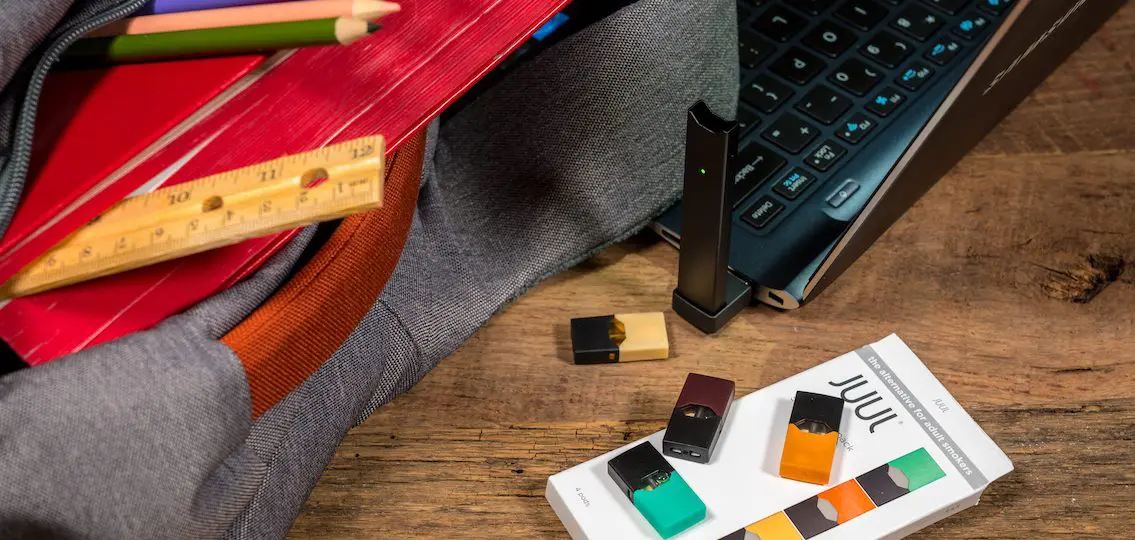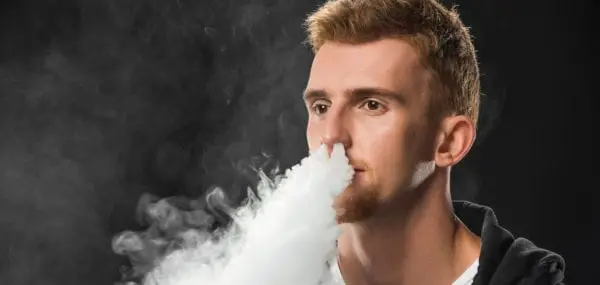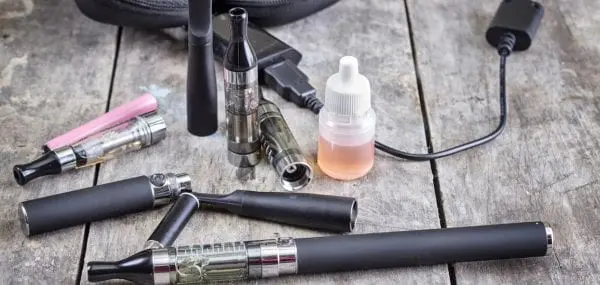At 15, my son became addicted to nicotine, which led to him vaping THC oil, implicated in the deaths of a dozen teens to date. We don’t know how to help him.
Like so many teens of his generation, my son, now 17, has always been adamantly anti-cigarettes. At age seven, he was horrified to spot someone smoking in a car. “Mom, did you see that? He was smoking!” he said, as if it was the most outrageous thing in the world.
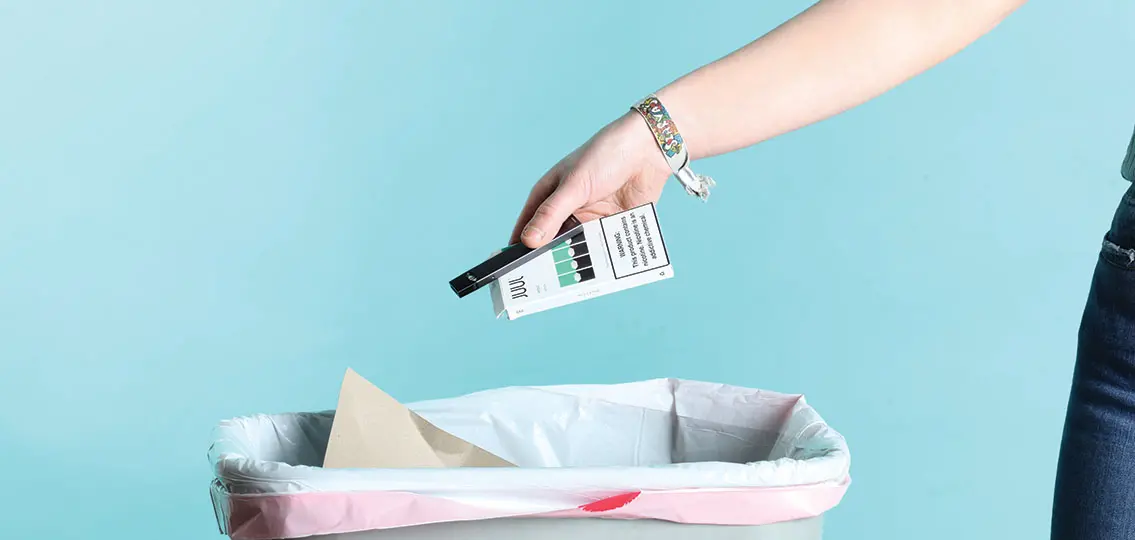
Hook, Line, and Sinker
Most of these teens would never have smoked cigarettes, never did smoke cigarettes. But they got caught up in the vaping epidemic. It was easy; it was fun; it was cool. They didn’t know what they were getting into. Many kids got hooked immediately. Our son was one of them.
The Juuling craze hit my son’s high school hard two years ago. Overnight, it seemed every teen was doing it—in the street, at home, at parties, in school bathrooms, even during class (blowing vapor into the hoods of their hoodies). But while “everyone” was trying it, the adults were clueless. Since the Juul was designed by its manufacturer to look like a USB, all the better to deceive grownups, and it was a breeze for teens to explain away.
A Device Designed to Deceive
Yes, the ‘80s and ‘90s had Joe Camel, the “fun” dromedary calculated to entice teens and even children into smoking cigarettes. The government required tobacco companies to stop targeting these young consumers. That was the right move. But for anyone who thinks this situation is equivalent, it’s not even close.
The Juul and its spawn are a different modality, an entirely new form factor, one that was crafted to deceive. The Juul exists to deliver highly addictive pure nicotine into the user’s lungs at far greater concentrations than conventional cigarettes, rapidly creating a generation of addicts. The industry whispered in the ears of kids and young teens, “This is our fun little secret.”
More Harmful than Cigarettes
What a cruel irony. In some instances, these devices now appear to be more harmful than cigarettes.
When it started, my husband and I were just as oblivious as every other grownup. Two years ago, I got a call from the mother of one of my son’s friends saying a Juul had dropped out of one of their backpacks. I mentioned it to my son, then 15. In time-honored teen tradition, he denied he had tried it.
But it soon became apparent he was a regular user. Our school district hosted a presentation on teen vaping at our local hospital led by a doctor specializing in addiction. The standing-room-only crowd was full of worried parents.
But the gist of the presentation was just, “Don’t let your kids start.” Once they start, he said, they would not be able to quit.
We sat there in stunned disbelief. Few found his warning not to start helpful.
What Now?
We were there because our kids already had a Juul addiction. What now?
Two years later, there is still a huge lack of advice about what to do when your teen is still addicted to Juuling. Teachers, school administrators and medical professionals are outmatched by the Juul and similar devices that appear on the market with alarming frequency.
This summer, after my son swore to us dozens of times he had quit, I discovered a laundry bag in his closet containing literally hundreds of empty Juul pods—each one the equivalent of a pack of cigarettes. When I saw the overflowing bag, my knees literally buckled.
My baby. My poor boy. The devastation— his and ours—of being addicted at such a young age to something he didn’t know would change his life.
This summer, he says he has managed to get off the Juul but admitted he is using THC marijuana oil on a pen device in its place. I read in the newspaper this is a common trajectory. First, Juul. Then, THC pen, whose use is implicated in the deaths from the mysterious lung disease.
For now, he has no signs of lung disease. We are working closely with his pediatrician, who says it might be better at this point for our son to smoke marijuana or use edibles as opposed to the pen. Pot is legal in our state, but the age limit is 21. His own doctor is recommending illegal use rather than have him continue vaping.
Our son is in therapy. He talks to us, often giving much more information than we want to know about the stresses of being a high school senior and why he started with all of this. But we are listening.
And we are left with the headlines every day about the dozens of young people who have died so far and the hundreds who have been sickened by the Juul or bootleg or commercial THC oil used in vape devices. I am left with the devastating image of a teen in a hospital bed on a ventilator. It’s all such a waste. How did we get here?
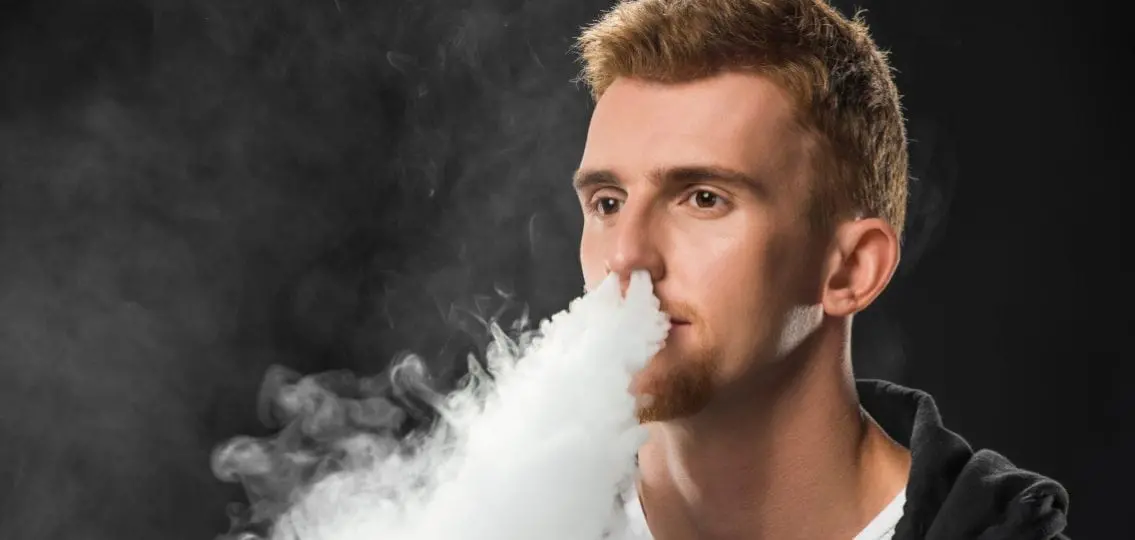
I’m heartbroken, and I’m angry. I don’t know how to help my son. I don’t know if we are doing the right thing. We don’t know what to do. Along with millions of other parents, my husband and I want answers.
